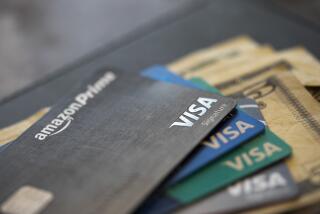Indebted Firms Find New Issues Aren’t Selling
- Share via
NEW YORK — Payless Cashways Inc., like other companies struggling with high interest payments, decided to ask Wall Street for help.
The building materials retailer thought it would go public, selling stock at $13 to $15 a share, and use the proceeds to retire some of its expensive junk bonds. But after the stock market had a lukewarm response, Payless slashed the price to the $9-$10 range.
Finally, on May 1, the company killed the proposed offering--and with it plans to reduce its long-term debt by $250 million.
Payless is not alone. Weakness in the market for initial public offerings is forcing other companies to shelve plans to reduce debt, much of it accumulated during the 1980s takeover era.
Other companies that made it to market received far less than they hoped for their shares. While 12% of initial public offerings were priced below their expected range in January, that figure jumped to 40% by April, according to IDD Information Services, a financial research firm.
So far this month, 17 of 36--or 47%--of IPOs that came to market were priced below expectations.
Unfortunately, Wall Street is scorning IPOs of companies whose financial improvement is contingent on successful stock sales.
“It goes back to the old banker analogy -- he’ll lend you an umbrella on a sunny day but call it back when it rains,” said Jim Somers of Somers Asset Management in Radnor, Penn.
Kansas City, Mo.-based Payless hoped to reap $400 million from its new stock offer. With that money, plus $215 million from a new junk bond offering and a new bank agreement, it expected to cut its indebtedness from $1 billion to $767 million and lower annual interest payments by $70 million.
After the IPO was canceled, Payless killed the new junk bond proposal. And Standard & Poor’s Corp. lowered its opinion on $615 million in Payless junk debt-- back to where it was before Payless proposed the stock offer.
More to Read
Inside the business of entertainment
The Wide Shot brings you news, analysis and insights on everything from streaming wars to production — and what it all means for the future.
You may occasionally receive promotional content from the Los Angeles Times.










